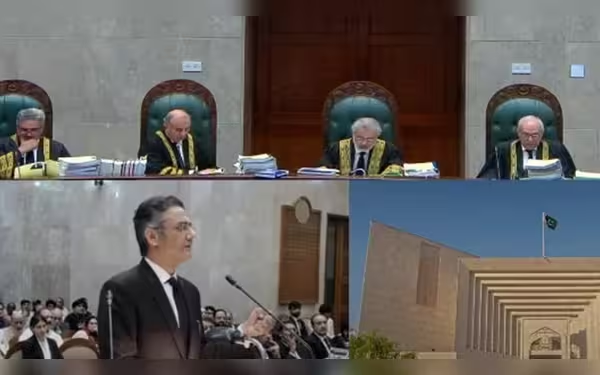Sunday, July 7, 2024 12:01 PM
Independent Members Excluded from 2002 National Assembly Session
- Exclusion of independent members based on constitutional guidelines
- Significance of party affiliations in distribution of power
- Complexities of political representation and role of party dynamics
 Image Credits: pakistantoday.com.pk
Image Credits: pakistantoday.com.pkThe exclusion of independent members in the 2002 National Assembly session sheds light on the complexities of political representation and the role of party dynamics in shaping decision-making processes.
During the 2002 National Assembly session, a total of 14 independent members were excluded from participating before the distribution of reserved seats among the two main political parties. This exclusion was based on the constitutional guidelines that dictate the allocation of reserved seats, which are determined by the election outcomes of the political parties.
Reserved seats are a crucial aspect of the National Assembly, ensuring representation for various groups within the political landscape. In this case, the exclusion of independent members highlights the significance of party affiliations and the impact they have on the distribution of power within the assembly.
The National Assembly is the legislative body responsible for making laws and overseeing the government in the country. It is composed of elected members from different political parties, as well as reserved seats allocated for specific groups such as women, minorities, and technocrats.
The exclusion of independent members in the 2002 National Assembly session sheds light on the complexities of political representation and the role of party dynamics in shaping decision-making processes. Understanding how reserved seats are allocated and the implications of such allocations is essential for grasping the functioning of the National Assembly and the broader political landscape.













